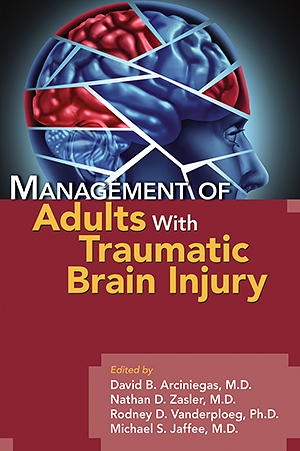Chapter 7.Anxiety Disorders
Sections
Excerpt
The spectrum of traumatic brain injury (TBI) severity, from mild to severe, is associated with an increased risk for anxiety symptoms. Anxiety problems can occur at any time after injury and vary from subtle changes in mood and behavior to severe panic and agoraphobia, significant agitation, or profound avoidance. Although rigorous, prospective epidemiological studies of anxiety after TBI are lacking, anxiety is often most profound shortly following injury, when the patient is dealing with acute postconcussive symptoms, adjustment to physical injury and neurocognitive deficits, and grief. Anxiety may also be temporarily increased due to the withdrawal or tapering of medications, such as sedatives or opioids, used in the acute post-TBI period. Moreover, a history of psychiatric conditions such as anxiety is more common in persons with TBI than in those without TBI, suggesting that anxiety and anxiolytics may be risk factors for sustaining a TBI (Fann et al. 2002). In addition to well-defined syndromes, symptoms such as fatigue, insomnia, perseveration, or apathy can occur in combination with anxiety. Therefore, the development of anxiety symptoms following TBI can be due to a combination of biological factors resulting from disruption of neurotransmitter and neuroendocrine systems caused by the TBI; psychological factors associated with a traumatic injury; and behavioral, interpersonal, and social consequences of the TBI.
Access content
To read the fulltext, please use one of the options below to sign in or purchase access.- Personal login
- Institutional Login
- Sign in via OpenAthens
- Register for access
-
Please login/register if you wish to pair your device and check access availability.
Not a subscriber?
PsychiatryOnline subscription options offer access to the DSM-5 library, books, journals, CME, and patient resources. This all-in-one virtual library provides psychiatrists and mental health professionals with key resources for diagnosis, treatment, research, and professional development.
Need more help? PsychiatryOnline Customer Service may be reached by emailing [email protected] or by calling 800-368-5777 (in the U.S.) or 703-907-7322 (outside the U.S.).



